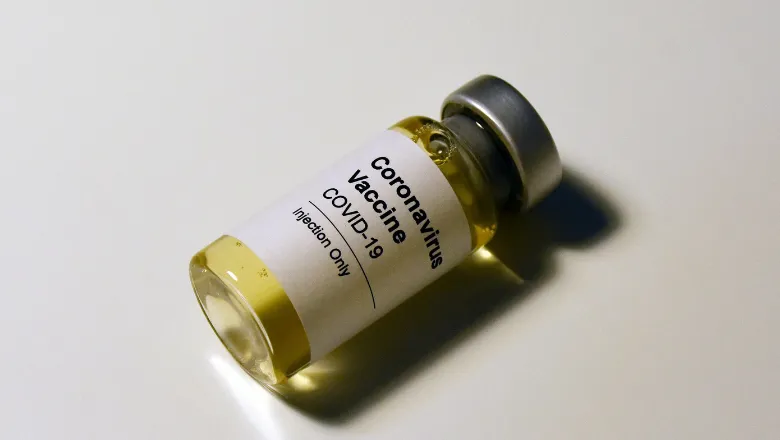Our data provides the first real-world evidence of immune efficacy following one dose of the Pfizer vaccine in immunocompromised patient populations. We show that following first dose, most solid and haematological cancer patients remained immunologically unprotected up until at least five weeks following primary injection; but this poor one dose efficacy can be rescued with an early booster at day 21.
Dr Sheeba Irshad, a senior clinical lecturer from the School of Cancer & Pharmaceutical Sciences
11 March 2021
Delaying second vaccine dose leaves cancer patients vulnerable to virus
More than half of cancer patients receiving a single dose of the Pfizer COVID-19 vaccine have been left with little protection against the virus.

More than half of cancer patients receiving a single dose of the Pfizer COVID-19 vaccine have been left with little protection against the virus.
Data from the world’s first reported trial to examine the level of immune protection after the Pfizer-BioNTech vaccine in cancer patients has found that anti-SARS-CoV-2 antibody responses at week 3 following the first dose of the vaccine were only 39% and 13% in the solid and haematological cancers, compared to 97% in those without cancer.
The preprint study also reports that when the second dose of the vaccine was given three weeks after the first dose, the immune response improved significantly for solid cancer patients with 95% of them showing detectable antibodies to the SARS-CoV-2 virus within just two weeks. By contrast, those who did not get a vaccine boost at three weeks did not see any real improvement, with only 43% of solid cancer patients and 8% of blood cancer patients developing antibodies to the Pfizer vaccine at five weeks compared to 100% of healthy controls.
The evidence of vaccine responses in cancer patients shows that a gap of twelve weeks between doses of the Pfizer-BioNTech vaccine could leave many cancer patients vulnerable to serious COVID-19.
The study, released today on pre-print server medRxiv and led by a cross-institutional collaboration between King’s and the Francis Crick Institute, details results from the so-called SOAP trial that enrolled 151 cancer patients and 54 healthy controls. Of these, 47 received two 30-μg doses of BNT162b2, administered intramuscularly 21 days apart at Guy’s and St Thomas’ NHS Foundation Trust, King’s College Hospital and Princess Royal University Hospital, Bromley. However, in line with changes in national government guidelines, those participants who had not received their second shot by December 29th, 2020, received only one dose within the study period with a planned follow up booster 12-weeks later.
The results have implications not just for cancer patients but for those around them, as a three-month period of poor protection can allow the virus to spread among those caring for the patients and may even create conditions favouring the emergence of new mutant strains.
As a result, the study’s senior authors, Dr Sheeba Irshad from King’s and Professor Adrian Hayday from King’s and the Francis Crick Institute, London, believe that there should be urgent re-evaluation of UK policy for the BNT162b2 dosing interval for all cancer patients, and likewise for many other high-risk groups of immuno-suppressed patients.
She continued: "Based on our findings, we would recommend an urgent review of the vaccine strategy for clinically extremely vulnerable groups. Until then, it is important that cancer patients continue to observe all public health measures in place such as social distancing and shielding when attending hospitals, even after vaccination.”
Professor Adrian Hayday from King’s College London and The Francis Crick Institute said: “The vaccine is very impressive in its impact on healthy individuals and our study shows that it can clearly bring immense benefit to cancer patients too, but in most cases this is only after boosting. Cancer patients should be vaccinated and boosted quickly and their responses, particularly those of blood cancer patients, should be intensively monitored so that those who mix with family, friends and carers can be confident of their environment. These insights were only gained by way of truly intensive, selfless commitment of many young research fellows working together as a team. In making that commitment we have been brilliantly supported by our host institutions.”
Dr Simon Vincent, Director of Research, Support and Influencing at Breast Cancer Now, who supported this study said: “For people with breast cancer, having certain treatments can increase their risk of contracting coronavirus, and of becoming seriously ill if they do get it, making it critical their needs are accounted for by the government’s vaccination strategy.
“Worryingly, this study suggests that people affected by cancer, including breast cancer, get little protection against the virus when they only receive a single dose of the Pfizer COVID-19 vaccine, and then do not receive their vaccine boost in the following three weeks. In contrast, the study identifies that when patients received a second dose of the vaccine within three weeks, they had significantly improved immune response and protection against coronavirus.
“In light of these findings we are calling on the Joint Committee on Vaccination and Immunisation to urgently review the evidence presented in this study, and to consider adapting its strategy to ensure that people who may benefit from this approach, including those with breast cancer, receive both the first and second dose of the Pfizer COVID-19 vaccine within a three week timeframe to minimize their risk of both contracting and becoming seriously ill with coronavirus.
“Anyone with questions about their treatment should talk to their treatment team. For questions about breast cancer, anyone can speak to our expert nurses by calling our free Helpline on 0808 800 6000.”
The SOAP trial will continue to follow cancer patients post vaccination for up to six months.

